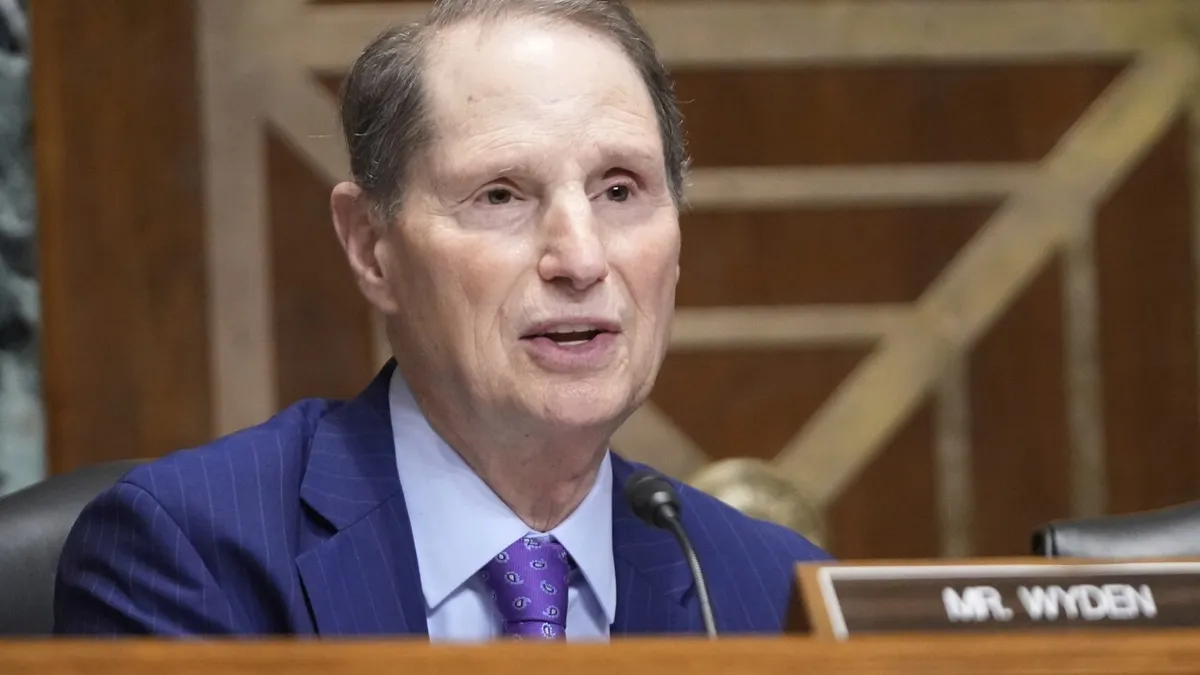
In a closely contested decision, Senate Republicans have successfully voted down a Democratic resolution aimed at blocking the global tariffs implemented by former President Donald Trump earlier this month. This outcome marks a modest victory for Trump, amidst ongoing skepticism from lawmakers in both parties regarding his trade agenda.
On April 2, Trump announced extensive tariffs affecting nearly all of the U.S. trading partners. However, following a significant downturn in the markets, he quickly reversed his stance, suspending the import taxes for a period of 90 days. The uncertainty surrounding these tariffs has raised concerns for both U.S. consumers and businesses alike. Adding to the economic anxiety, the Commerce Department revealed that the U.S. economy contracted by 0.3% from January to March, marking the first decline in three years.
The recent vote concluded with a tie at 49-49. This comes on the heels of a previous resolution that successfully limited Trump’s ability to impose tariffs on Canada, which passed with a 51-48 vote thanks to the support of four Republican senators: Susan Collins of Maine, Lisa Murkowski of Alaska, and Mitch McConnell and Rand Paul of Kentucky. However, McConnell, who has been a vocal critic of the tariffs, and Democratic Senator Sheldon Whitehouse were absent during the latest vote, which ultimately denied the Democrats the necessary votes for passage.
Democrats emphasized that their primary objective was to put Republicans on record regarding their stance on the tariffs and to reassert congressional powers. Senator Ron Wyden from Oregon, a key sponsor of the resolution, expressed that “the Senate cannot be an idle spectator in the tariff madness.” Senate Democratic Leader Chuck Schumer remarked that the alarming economic statistics should serve as a “wakeup call” for Republicans.
In an effort to avoid a rebuke to Trump, GOP leaders advised their members against supporting the resolution, even though many remain unconvinced about the viability of the tariffs. During a Senate GOP luncheon, Vice President JD Vance and U.S. Trade Representative Jamieson Greer reassured senators that the administration is making strides towards establishing trade agreements with individual countries. Collins noted that the close vote illustrates a growing unease among Republicans regarding the president’s strategy, stating that feedback from employers back home reflects negative impacts from the tariffs.
Some Republicans dismissed the resolution as a political maneuver. Senator Thom Tillis of North Carolina voiced his support for separate legislation proposed by Senator Chuck Grassley from Iowa, which would enhance Congress's authority over tariff determinations but criticized the resolution as merely a means of “making a point.” Conversely, other Republicans expressed support for Trump's tariffs, believing that he should be given time to demonstrate their effectiveness. Senator John Kennedy from Louisiana remarked that many are willing to give the president an opportunity to prove that his new system can succeed.
Democrats warned that the Republicans' reluctance to challenge Trump could lead to severe repercussions. Schumer stated, “The only thing Donald Trump’s tariffs have succeeded in is raising the odds of recession and sending markets into a tailspin.” He emphasized that Republicans are faced with a choice: to align with Trump or prioritize the interests of their constituents.
The Democratic resolution forced a vote under a statute allowing them to attempt to terminate the national economic emergency that Trump invoked to impose the tariffs. Senator Elizabeth Warren from Massachusetts referred to it as a “fake” emergency, criticizing the arbitrary nature of Trump's tariff implementations. Following the tied vote, Republicans conducted a procedural vote to ensure that Democrats could not reintroduce the resolution, with Vice President Vance present to cast the tie-breaking vote to dismiss it.
Despite the turmoil, Trump has sought to reassure the public that his tariffs will not lead to a recession. His administration has focused heavily on China, raising tariffs on Chinese goods by as much as 145%, while pausing others. In a Cabinet meeting, Trump claimed that these tariffs have put significant pressure on China, stating, “Maybe the children will have two dolls instead of 30 dolls.” His remarks underscore a belief that the U.S. can survive without imports from the world’s leading manufacturer.
As the situation evolves, the implications of these tariffs on the U.S. economy and global trade relations remain to be seen.